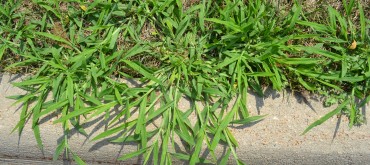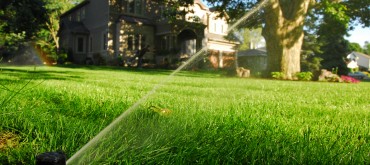We experience a variety of questions and concerns pertaining to animals digging at various times throughout the year. Often these customers’ initial reaction is the cause of this digging is grubs - which in fact, most of the time is not the case.
Grubs are a common insect that can be found in many, if not most lawns here in Ontario, and animals such as raccoons, skunks, or squirrels have a habit of digging in lawns. Some of these wildlife are known to exhibit such behavior when searching for food, particularly insects like grubs and earthworms. However, if you’ve observed scouting without the presence of larger holes, it suggests that the animals may not have been successful in their search for a significant amount of food. It’s important to note that there isn’t much that can be done to prevent animals from looking for food, as this is a natural behavior driven by their survival instincts. They will proceed to scout in both unhealthy and healthy lawns, whether they believe there to be insects or not, attempting to pull up the turf to access the soil beneath the roots.
The good news is that scouting alone does not mean you have insects that are harming your lawn’s growth, but frequent animal visits could be a sign of weak turf, and here at Turf Systems, a strong healthy lawn starts with a strong root system. So why is a healthy root system so important when it comes to animal digging? If these animals visit a lawn with a shallow root system it will be extremely easy for them to pull up and explore as opposed to a lawn with a deeper root system that is much harder to access. Ultimately, they tend to revisit lawns with weaker root systems, as it makes the job of digging and scavenging a lot easier for them - regardless of the presence or quantity of insects.
The best way to achieve deeper root growth revisits the three macros of plant health, while our properly balanced fertility will take care of the needed nutrients, the practice of high mowing heights and proper watering is critically important. Watering deeply and infrequently will encourage the roots to grow down for their water source as opposed to watering frequently and allowing them to remain closer to the surface leaving the lawn in a more vulnerable condition. So if you experience animal digging, before jumping to the conclusion of grubs, take a closer look at the location of the digging and assess why that area of the lawn may be weaker and more vulnerable than the rest.
Each lawn has a threshold when it comes to various stressors and to increase that threshold it is important to always be assessing your maintenance practices. Grub feeding on roots does not harm the lawn as they can easily regenerate if there is not an unusually high amount of grubs present. Applying products such as Nematodes or GrubGone will only act to suppress the number of insects by a small percentage, where the bigger solution lies in improving root development. Fertilize regularly, water deeply and infrequently, and mow every 5-7 days no shorter than 3 inches. If you’re looking to further develop the root system in your turf, then you can also consider booking a Core Aeration to improve root growth and allow nutrients, oxygen, and water to penetrate more effectively.
If you have any additional questions or concerns pertaining to the condition of your lawn or how best to improve it please feel free to contact our team.





